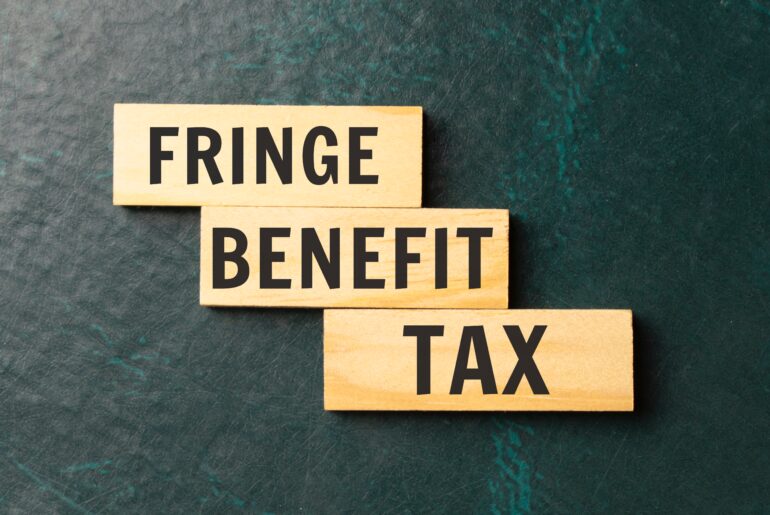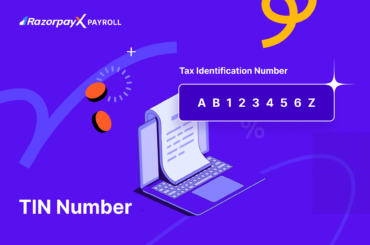Perquisites or fringe benefits are perks that employees enjoy over and above their salary. Some of these components are taxed separately from an employer’s account to maintain accountability and transparency. Some perquisites are tax-exempted as well.
This article discusses its various aspects – the meaning, its different types, calculation of taxes, and some of its most common examples.
Table of Contents
What are perquisites in salary?
Perquisites are profits that come in addition to an employee’s regular salary. Perquisites in salary can be as simple as company-sponsored accommodation, fuel reimbursement, etc., or may include interest-free loans, medical facilities, etc.
Differences between Allowances and Perquisites
| Basis | Allowances | Perquisites |
| Definition | A fixed amount paid to the employee to meet certain special expenses. | Benefits are provided to the employee due to their professional service. |
| Mode of payment | It is generally paid out in cash. | It is primarily paid in consideration other than cash. Only in case of reimbursement is it paid in cash. |
| Tax liability | It is taxable when paid along with salary, and hence it increases tax liability. | It may or may not be taxed depending on its type, and hence it may not increase tax liability. |
| Impact on take-home salary | It increases take-home salary. | It doesn’t impact the take-home salary. |
| Example | HRA (House Rent Allowance), medical allowance, etc. | Company car, rent-free accommodation provided by the company, refreshments in offices, etc. |
What are the different types of perquisites?
These are classified into the following three major heads based on the tax levy:
Taxable Perquisites
Some of the fringe benefits are taxable in nature, such as the supply of gas, water & electricity, rent-free accommodation, professional tax, reimbursement of medical expenses, etc. This category also includes other fringe benefits extended by employers, such as free meals, gift value exceeding Rs.5,000, club & gym membership, etc.
Tax-exempted Perquisites
There are many non-taxable fringe benefits, such as travel allowance, reimbursement for company-sponsored computer/laptop provided for official use, provision for medical aid, use of health club & sports club, refreshment offered during office hours, telephone lines, interest-free loans, employer’s contribution to provident fund, free medical facilities, etc.
Perquisites taxable only by employee
This category includes education facility for children, car owned by the employer but used by the employee, etc.
Perquisites Benefits
Some surveys show that 50% of employees would leave their job for better employee benefits. In today’s time, employees want more than just a salary. Offering these benefits helps you,
- Improve employee productivity
- Increase employee loyalty
- Increase employee retention
- Attract top talent
Perquisites Example
Let’s look at an example to understand better. For instance, an employee in a sales profile has to do a lot of fieldwork. It translates into a lot of work-related travel regularly, which entails a lot of expenses borne by the employee. Examples of such expenses include fuel, food, car maintenance, accommodation, etc. In order to ensure that the employee doesn’t feel the burden, the employer usually offers perquisites over and above the salary to compensate for these expenses. This is the primary benefit of having perquisites in salary.
Taxation on perquisites under Income Tax Act
As per the Income Tax Act, taxation on perquisites is calculated based on the following:
- The tax rate for the given fiscal year
- Income recognised under salaries
- Tax paid by the employer for the perquisites
Let us now understand the concept of perquisites with the help of an example:
Tax calculation on perquisites with example
Let’s say that the income recognised under salaries for a regular employee, Amit, is Rs.9,00,000, which includes Rs.1,00,000 paid by him the employer in the form of non-monetary perquisites.
As per the latest income tax norms, the income tax charged on the salary inclusive of education and health cess @4% will be = Rs.85,800
Therefore, average tax rate can be calculated as – Rs.85,800 / Rs.9,00,000 x 100% = 9.53%
Therefore, tax paid by the employer on Rs.1,00,000 perquisites = 9.53% x Rs.1,00,000 = Rs.9,533
Therefore, the amount of tax to be paid every month = Rs. 9,533 / 12 = Rs.794
Hence, the employer will have to pay Rs.794 as TDS on the employee’s salary.
Note: From FY 2020-21, employer contributions to retirement funds such as Employees Provident Fund (EPF), National Pension System (NPS), or any other superannuation fund that exceed Rs 7.5 lakh will be taxable as perquisites in the hands of the employee.
💡Pro tip: If you find the calculation too cumbersome and complicated, you should try RazorpayX Payroll. It will automatically calculate the TDS amount as part of its payroll processing.
Tax-exempt perquisites
Many of the perquisites an employer pays are taxable under the head “Income from Salaries”. However, some are tax-exempted, and the list includes (not exhaustive) the following:
- Leave travel concessions subject to conditions
- Medical treatment/expenditure
- Computer/laptop for official use
- Fees paid for corporate membership
- Annual premium paid for personal accident policy
- Subscription to work-related periodicals and journals
- Gifts not exceeding Rs.5,000 per annum
Automate perquisites and tax calculations with RazorpayX Payroll
RazorpayX Payroll is a one-stop solution for payroll processing, employee onboarding, automated statutory compliance, and all other HR activities.
Moreover, it also files various taxes such as PF, PT, TDS, and ESIC along with their automatic calculation, so that you and your team can focus on value-adding tasks.
So, what are you waiting for? Sign-up for RazorpayX Payroll today and leave all the tedious calculations to us, and focus on doing what you love to do.
Read more:
FAQs
1. Are perquisites part of the salary?
Yes, perquisites are included as part of salary income if received from an employer. However, perquisites received from a person other than an employer are included under income from other sources or as part of profits and gains of business or profession.
2. What are perquisites examples?
Some of the most common examples of perquisites offered by many employers to their employees include company cars, rent-free accommodation, and stock options.
3. What is meant by perquisites under income tax?
As per the Income Tax Act, perquisites are defined as any benefit that employees are entitled to owing to their job or position in the organisation. Perquisites have essential tax consequences on the part of the employees.





